We meet Peter Kelly, Mates in Mind’s new head of programme to find out what he thinks about mental health at work, and the message he wants to get out to people.
Features
Peter Kelly: man on a mission
There’s an element of formality about meeting someone new in a work context. Peter Kelly, ex HSE senior psychologist and now Mates in Mind’s head of programme, isn’t interested in any of that. “Do you want to do [the interview] in the pub?” he asks cheerily from the off.
Kelly is someone who likes to put people at ease, to connect. “I’ve found that if you’re going to talk about mental health at work you have to be real,” he explains, as we locate a pub near British Safety Council’s Hammersmith offices.
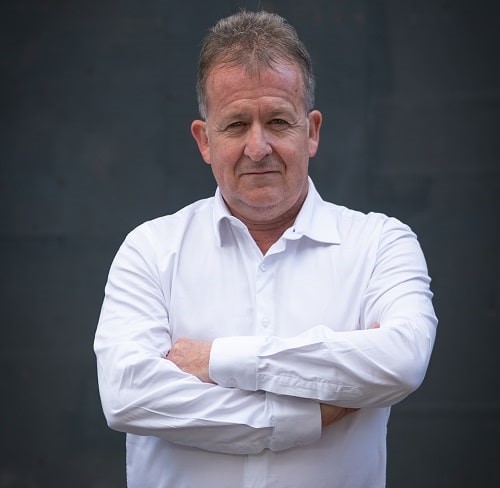 Peter Kelly. Photograph: JamesRudoni / rudoniphoto.com
Peter Kelly. Photograph: JamesRudoni / rudoniphoto.com
An Aussie by birth, he’s spent the last 30 years in and around Liverpool, first as the place where he got his MSc in occupational psychology at Liverpool John Moores University and later when he joined HSE, headquartered in Bootle. His accent is Aussie with flashes of Scouse. He speaks fast, and quickly conveys both important and fun details. He loves Real Ale IPA. He wants mental health campaigns to cut through and have impact.
Hence his move to Mates in Mind. “I’m excited about getting onto construction sites, talking about mental health and showing people the vision of what we’re trying to achieve of moving to a prevention-based approach,” he shares. As it’s his first few weeks in the role, we’re not going to discuss his plans in detail at the mental health charity, but it’s a chance to explore his vast experience in mental health at work and stress prevention. What are his priorities, and what has he learnt from the past?
Early work on stress
Kelly joined HSE in September 1998. Tony Blair had recently won his landslide election victory and the new Labour government wanted to do something about the large numbers of people missing work due to work-related stress. “At that stage it was about 9 million days – and they said, ‘that’s too many, we want to do something.’”
In 1999, Kelly, then a higher psychologist, was part of the team tasked with the job: “We were asked to produce a paper, a mental health strategy, 24 hours after the question was asked,” he recalls. “We were at a conference and sat down in the hotel bar, as all good psychologists do, and thought well, what does a good national approach to stress at work look like?”
The next four years were spent consulting businesses and unions and testing the team’s stress management standards on thousands of people in workplaces. Underpinning these standards was, and still is, the understanding that the organisation is responsible for identifying and controlling stress at work: “The management standards are about the organisation and the organisation’s responsibility,” says Peter.
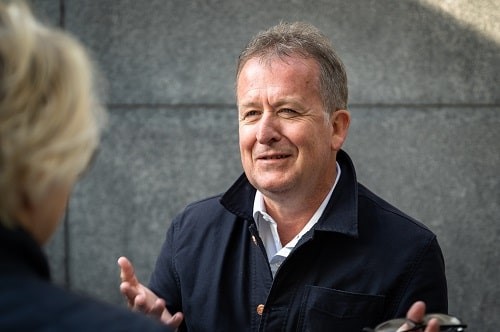 Peter Kelly: "You’ve got one moment to be in that person’s space and it’s your job to tell it like it is. Whether it’s five people or 500, it doesn’t matter." Photograph: JamesRudoni / rudoniphoto.com
Peter Kelly: "You’ve got one moment to be in that person’s space and it’s your job to tell it like it is. Whether it’s five people or 500, it doesn’t matter." Photograph: JamesRudoni / rudoniphoto.com
Early progress
The standards require the organisation to control risk, by assessing six areas of work design: demands, control, support, relationships, role and change. They chose the risk assessment model because it meant, in theory, that mental health would be controlled like any other health and safety hazard, in that it was part of the HSWA duties.
When the standards were finally launched on 1 November 2004, HSE had a ‘boots on the ground’ approach to getting employers to take them on. “There was lots of activity, over 70 conferences, adverts in papers, no social media then so everything was feet on the ground,” he says. HSE even gave out 10,000 CD ROMs pre-loaded with the standards at London tube stations.
By 2006 the number of days lost due to work-related stress in the UK had dropped by 3 million.
‘Work shouldn’t make people ill’
That success turned out to be short lived. Days lost due to work-related stress still take up the lion’s share when we look at ill health. The numbers have also not only refused to fall further but have climbed steeply up. By the last figures, 17.9 million days were lost to work-related stress covering the year 2019/20.
Other people might have given up. But not Kelly. He has a formative reason for keeping going. His first job on graduating was in a neuro-psychology unit, where he would see people clinically depressed or with anxiety. “I remember thinking 50 per cent of the patients were coming to me because something had happened to them at work. And that prompted me to think ‘why are we treating the symptom when we should be looking at the cause?’ … If work is a contributing factor to people’s mental health then surely, we should be doing something different.”
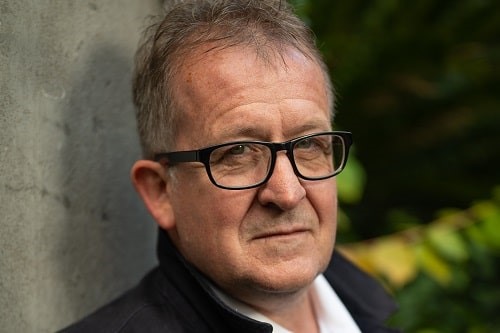 Photograph: JamesRudoni / rudoniphoto.com
Photograph: JamesRudoni / rudoniphoto.com
His driving force since those days has been hammering home the message that stress is preventable. “I fundamentally and still believe you shouldn’t come to work and be made ill – 17.9 million days lost to work-related stress isn’t an acceptable outcome. We’ve put it in the ‘too hard’ category. But as an inspector, when you go onto site, and someone hasn’t put a guard on a machine because it’s too hard you’d say, no, you need to put the guarding on. With stress, we put the guarding between the job and the person, which is reducing risk in those six areas of work, which are a barrier to stopping them becoming ill.”
‘The mother test’
Peter is a self-confessed mental health geek who devours the latest books on the subject, but he connects with his audiences because he doesn’t over-complicate the topic. The opposite – he’s always looking for ways to make the message cut through. “I was talking to construction workers about becoming an ambassador for mental health,” he recalls. “They said to me, ‘what’s that? Do you mean someone people can talk to? Well say that then!” At Mates in Mind he will be bringing this powerful brand of relatability to his role in reaching new workforces.
He knows what works. At HSE he was given targets, so messaging had to land: “For a message to get across there’s a school of thought that goes you need 80 per cent of what’s heard to be taken in, and 60 per cent of people to respond to get a population shift.” Although the thinking is always evidence based and scientific, the words must be simple and above all, human. “The message has to be straightforward and easy to understand. It can’t be intellectual.” He calls it the ‘mother test’: “If you write a piece of guidance and your mother can understand it you’re onto a winner. I did it with my mum for the management standards!”
He’s naturally a people person. In lockdown, knowing others would be feeling isolated, he invited all his LinkedIn contacts to share coffee on Zoom. “I showed them the birds in my garden. I gave them names!” It still runs every weekday at 2pm and is called ‘coffee with Pete’.
Each speech is a chance to connect. A friend who was dying left him with a powerful thought that remains a source of inspiration – make each word count. “You’ve got one moment to be in that person’s space and it’s your job to tell it like it is. Whether it’s five people or 500, it doesn’t matter. We don’t know the impact and we don’t have control. I only need to touch one person and for them to get the message.”
Organisations cause stress, not individuals
Days lost due to work-related stress may have stayed high, but cases have also been on the rise. Kelly has spoken of a ‘tidal wave of mental health’. In the last year, 822,000 workers suffered from work-related stress, depression or anxiety, up from 600,000 cases in 2018/19.
What does he think is behind it? Partly it’s been broader trends: “In the late 2000s things had been coming together strategically – the stress management standards had worked well [with an early reduction in days lost] and in 2008 we had Dame Carol Black write her report for the government recommending that organisations will need to extend their agenda to health and wellbeing. But then we saw the birth of health and wellness as a movement. Many people then defaulted to going back to the individual.”
There was also the recession of 2008 but the popularisation of wellness, whether in the media or used to shift gym wear, has a lot to answer for in Kelly’s book. Since its growth, organisations have defaulted to this ‘over-reliance on people making the difference’, investing in mindfulness and resilience training which should be supplementary to core work on job design and ensuring the culture of an organisation is one that supports stress prevention.
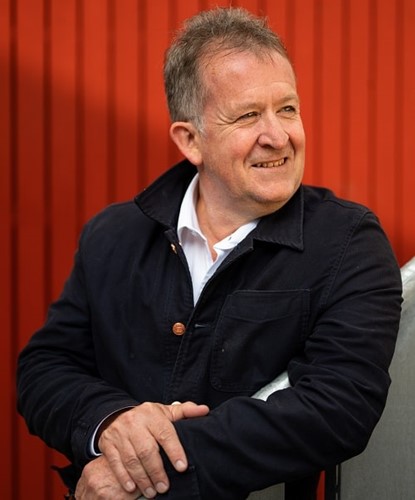 “If you fail to act on your stress risk assessment it’s a breach of health and safety law." Photograph: JamesRudoni / rudoniphoto.com
“If you fail to act on your stress risk assessment it’s a breach of health and safety law." Photograph: JamesRudoni / rudoniphoto.com
“Many organisations are finding that those [efforts] focused on the individual are not working. We academics have known for a long time that tertiary interventions are only effective when the organisational stressors have been tackled too.” It’s also this approach which will protect employers from prosecution: “If you fail to act on your stress risk assessment it’s a breach. It’s a straightforward notice HSE can issue. The provision of mindfulness doesn’t negate the organisation’s responsibility.”
Enforcement on the horizon?
Will HSE enforce the stress management standards? So far, HSE has been focused on guidance and behaviour change, yet Kelly thinks that now the expectation on the regulator has built to a point where they will need to be seen to be more involved. “HSE routinely looks to manage people’s mental health and stress, but the reality is regulatory activity will be encouraged in the long run to get people to take it seriously.”
It’s true, he says, that a notice of contravention may help only those small numbers on that one site, but the ripple effect will be powerful. “You want to change the culture of the way the risk is perceived. Carrot and stick. So far, the HSE has been a big bunch of carrots, but they will want to see the UK tackling this like any other risk and the reality is employers need some encouragement and the regulations exist for them to do that.”
There are lots of talking points we could have covered – the cost of living, hybrid working, skills and job shortages. But Kelly won’t be dragged into making a statement on these. For him, it’s always been simple. The world might change, but the message about stress prevention and designing good work stays the same. “It’s fine to try all sorts of interventions, but in isolation they don’t work. If you don’t address the systemic issues then the other things become… just woolly.” He struggles to find the right word, to be firm but not firm but not unkind: “It’s important to tell people the truth.”
Photography by James Rudoni: rudoniphoto.com
Mates in Mind is a UK charity addressing the stigma of poor mental health and is focused on promoting positive mental wellbeing in the workplace. Established in 2017 by the Health in Construction Leadership Group (HCLG) with the support of the British Safety Council, Mates in Mind aims to make a difference by providing the skills, clarity and confidence to employers on how to raise awareness and improve understanding of mental ill-health. Encouraging all organisations to start the conversation. matesinmind.org
FEATURES
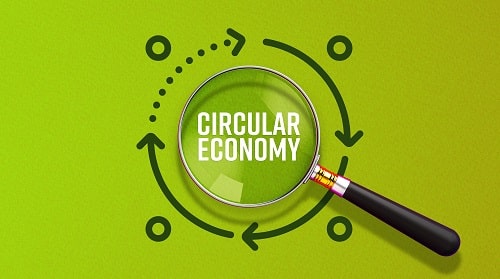
How to build circular economy business models
By Chloe Miller, CC Consulting on 07 April 2025
Widespread adoption of a circular economy model by business would ensure greater environmental and economic value is extracted and retained from raw materials and products, while simultaneously reducing carbon emissions, protecting the environment and boosting business efficiency and reputation.

What does the first year on an accelerated net zero path have in store for UK businesses?
By Team Energy on 07 April 2025
The UK is halfway to net zero by 2050 and on a new, sped-up net zero pathway. In light of this, Graham Paul, sales, marketing & client services director at TEAM Energy, speaks to TEAM Energy’s efficiency and carbon reduction experts about the future of energy efficiency and net zero in the UK.

Aligning organisational culture with sustainability: a win, win for the environment and business
By Dr Keith Whitehead, British Safety Council on 04 April 2025
The culture of an organisation is crucial in determining how successfully it implements, integrates and achieves its sustainability and environmental goals and practices. However, there are a number of simple ways of ensuring a positive organisational culture where everyone is fully committed to achieving excellent sustainability performance.



